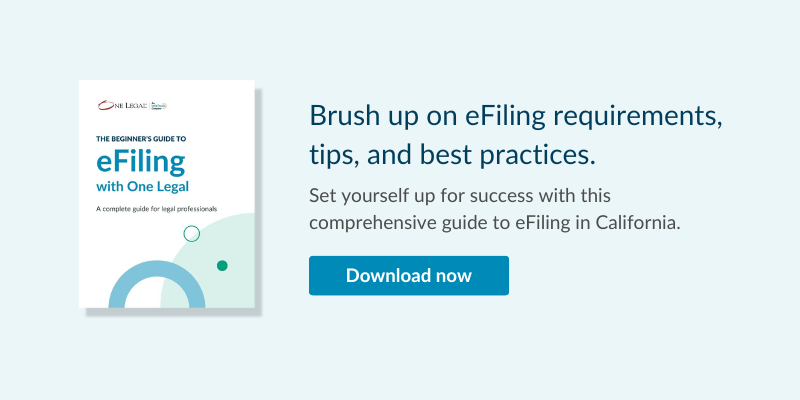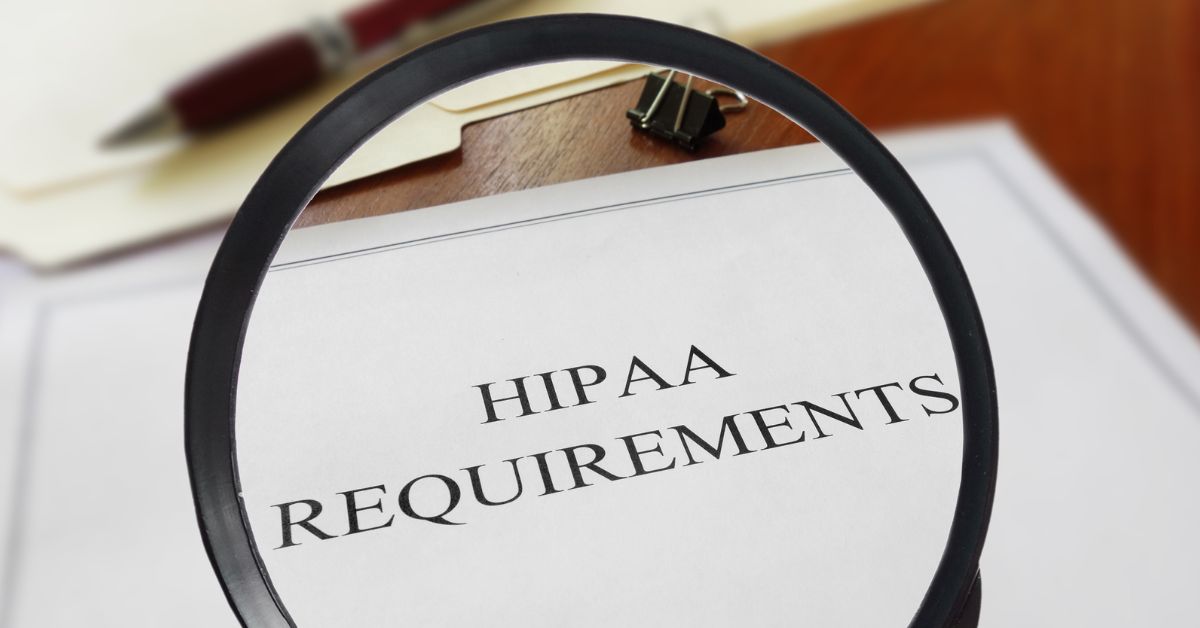Has electronic court filing begun in your county yet? Federal Courts have long since mandated eFiling and state courts have slowly joined the march toward digital progress. Some states, like Indiana and Illinois, have implemented a statewide system for eFiling, while others, like California, are leaving it up to the individual counties to gradually choose their own approach.
This year, Los Angeles County has plans to add other case types to the eFiling program they began in 2017. California’s San Mateo, Santa Clara, and other counties will also be launching eFiling in new case types. Illinois’ Cook County courts are also hard at work readying for their Spring 2018 eFiling launch.
As more and more courts embrace electronic submission of court filings, it becomes increasingly important for legal professionals to be well-versed in the ins and outs. Here are some of the top things to know about eFiling.
[textblock style=”1″]Ready to learn about eFiling from the start? Get our free Beginner’s guide to eFiling. Download now>>[/textblock]
How eFiling changes your job
We’ve discussed the benefits of eFiling, which include time and money-savings, increased accessibility, and greater control over documents. Along with the clear benefits, there are other more complex changes, too.
Different document requirements
In eFiling courts, many documents will only ever be viewed digitally. When looking at computer and device screens, we perceive things differently than we do on paper. This is why font size, spacing, and margins are often specified more directly, in order to maximize comprehension for the clerks and judges reading your document. You can download the checklist for your state to keep track of formatting best practices.
Digital documents also offer greater functionality when it comes to finding information, which most courts take advantage of. Electronically filed legal documents are required to have a linked table of contents, bookmarked exhibits, and text searchability—all to make it easier for readers to navigate the document.
Readability and navigation don’t just help the readers, they also help your case, by making the information put forth in your document more accessible and memorable. So in the end, it will be worth your time to accommodate these changes.
Alternative deadlines
While filing the traditional way is all about getting to the court window before it closes, electronic processes are a little more complicated. It’s important to pay attention to eFiling deadlines, specifically, as the digital nature of submission makes these much more flexible.
Many state courts such as Indiana and Illinois launched eFiling with an 11:59 p.m. filing deadline. And as of the beginning of this year, the state of California adopted similar deadlines, so that if a document is submitted at any time on that calendar business day, that will be the time stamp applied when it is reviewed by a clerk.
While this extension of in-person hours does offer much more flexibility for filers, it should be considered with a grain of salt. After all, who among us wants to be up until midnight finishing that important filing? Just because you can wait, doesn’t always mean that you should.
Most paper rules still apply
We have a saying around One Legal when it comes to finding answers to questions that are related to or about eFiling: “What would you do in the paper world?”
While there are plenty of specifics that should be considered for the electronic world, there are just as many or more details about the court filing that will remain the same for you. We do our best to tease out the differences in the practice to help you stay on top of eFiling, however, at the core, this practice is still submitting documents to the court. You’re simply doing it via a different medium.
Is there only one courthouse that accepts Probate cases in your county while Civil Harassment files only get submitted to another? Are case numbers critical to getting your document filed? These factors will still be true under a new eFiling approach.
There’s still a clerk
Improved technology can allow us to forget that in most cases, there are still people at work behind the screen. Just as robots aren’t yet writing your briefs for you, there are still clerks in the courthouse reviewing and making decisions about your documents. eFiling is simply a portal for more streamlined delivery of these files.
When it comes to conformed copies, eFiling courts don’t usually set a level of expectation on turnaround time. Your filed endorsed copies are typically returned within 24-48 hours, but that can vary depending on clerk availability, court holidays, and document review—just like in the paper world. Documents that require judicial review, such as a proposed order or a Request for Default Judgment can take longer to return.
While you get accustomed to eFiling and working with digital documents (and maybe a new system), so, too, are the court clerks learning how to handle eFiled documents. This makes mistakes on both sides likely as adjustments are made.
***
What has been the most significant thing you’ve learned since beginning electronic court filing? Share what you think fellow professionals should know about eFiling in the comments.








